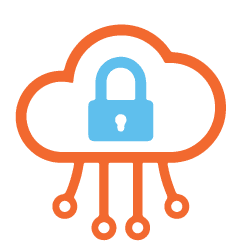Pulmonology Billing Simplified for Modern Practices
Spend less time on paperwork, focus more on patient’s. Power your practice with pulmonology software designed for smooth billing, faster payout and full compliance.
Challenges Pulmonologists Face in Medical Billing
Pulmonologists works in a complex care environment, but billing should not adds to that stress. Common issues providers face includes:
Inaccurate Claims
Small errors often leads to claim denials, these delay hurt revenue.
Time-Consuming Manual Work
Billing staffs spend hours entering code, this take away from patient-focused tasks.
Poor Visibility into Financials
Without the right pulmonology medical software, providers can’t tracking revenue trends.
Manual Work
Many clinic still uses manual billing system. Staff waste hours doing tasks that technology could done in seconds.
Complex Rules
Keeping up with billing codes and policy is hard, especially when it involves codes like ICD 10 code for diabetes or guideline like diabetes management plans.
A Smarter Way to Manage Pulmonology Billing
This platform support you behind the scenes. It’s not a medical provider it don’t offer treatments. Instead it uses smart tool to manage pulmonology billing services.
You care for lungs, the software care for numbers.
Features Designed for Pulmonology Services

Custom Coding Tool:
Tailor to pulmonology treatment workflows

Automated Claim Submit:
Cut down on manual data entering

Revenue Cycle Manage:
Track every dollar, from visit to pay

Secure Cloud Access:
Manage billing from anywhere

Integrated Scheduling & Invoice:
Sync appointments and payment

Boost Revenue with Less Denials
Built-in error check increase claim acceptance get paid faster.

Save Valuable Staff Times
Less time on billing, more on patient caring and operations.

Stay Compliant Easily
The system updated regularly, stay in step with healthcare law.

Design for Pulmonology
Pulmonology billing services is complex, the tool understand your specialty.

Better Insights Smarter Planning
Get clear financial dashboard, plan growth with data.
Make Pulmonology Billing Work for You
You need tool that match the pace of modern care. Manual billing slows you, error cost money.This platform made to help you do more fast and better.Sign up take less than 5 minute, onboarding is smooth.

Start Now. Billing Gets Easy from Here.
Get access to pulmonology software works hard as you do. No more lost revenue, no billing error.

Sign Up. Streamline Pulmonology Services Now.
Don’t let billing slow practice down, start using smart pulmonology medical softwares.
It help providers manage billing for pulmonology services, automate claims and improve accuracy.
No, it not provide any kind of treatments or prescription.
Yes, it’s a tools made to assist billing and revenue task.
Pulmonologist, billing team, and healthcare admins looking simplify billing.
Yes, it use encrypted cloud tool, your data stay protected.










